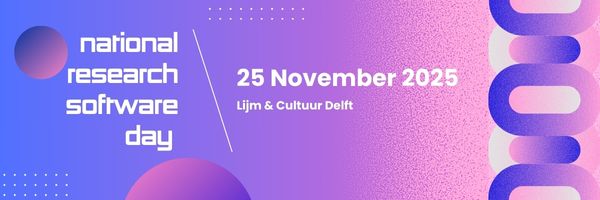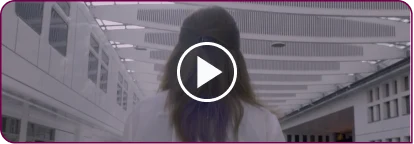November 2020 Online meetup of the NL-RSE Community.

Location
The call will be conducted with the ZOOM conferencing platform. Follow Joining the Meeting instructions.
Zoom link will be published soon.
Registration
The registration is free
Please register via this Eventbrite page.
Agenda
| Time | Responsible | Type | Subject |
|---|---|---|---|
| 09:00 - 09:15 | hello & coffee | ||
| 09:15 - 09:20 | Mateusz Kuzak | Welcome and purpose | |
| 09:20 - 09:25 | Mateusz Kuzak | Agenda and ground rules | |
| 09:25 - 09:30 | everyone | Introductions and announcements | |
| 09:30 - 11:00 | Richard Zijdeman | interactive session | Grlc + RAMOSE |
| 11:00 - 11:15 | break | ||
| 11:15 - 11:45 | Meiert Grootes | talk + demo | Evidence |
| 11:45 - 12:45 | Jaap Blom | talk + demo | Annotation tools |
| 12:45 - 12:50 | discussion | Parking Lot | |
| 12:50 - 12:55 | discussion | Evaluation |
Abstracts
Grlc + RAMOSE user meeting -- how do you apply grlc, what could be better, what's really bad?
grlc is a lightweight server that creates Web APIs to access Linked Data. SPARQL queries are transformed into API endpoints. API parameters can be mapped to query variables, adding flexibility to how the data is accessed.
Grlc has been successfully used in a number of projects, but it is far from perfect. In this session we would like to have a discussion with grlc users (and potential users) to discuss what are the current limitations and points of improvement.
RAMOSE[https://github.com/opencitations/ramose] (Restful API Manager Over SPARQL Endpoints) is an application that allows agile development and publication of RESTful APIs for querying SPARQL endpoints according to a markdown-alike specification document.
RAMOSE is currently used by the OpenCitations infrastructure to serve several RDF datasets to non-semantic web developers. In this presentation a few motivations for developing (yet another) API on SPARQL endpoints will be introduced, so as to support the discussion on grlc roadmap based on similar experiences.
The outcome of this session will be the grlc roadmap -- a list of Github issues that the grlc developers (and potential contributors) can use to further develop grlc!
Evidence -- a machine assisted close reading tool with support for abstract concept-based search and context-based search.
Digitization of text corpora has benefited humanities research by simplifying access and enabling the use of text analysis tools. However, the standard entry point used by current systems is keyword based search - an entry point incompatible with proven methods of scholarly close reading. Close reading is a key element in the pursuit of research questions focussing on complex or abstract concepts. In these situations keyword search based entry point often proves to be very restrictive, making it difficult, if not impossible, to formulate adequate search criteria and queries. Here we present a machine assisted close reading tool called Evidence. It provides an alternative, intuitive entry point into collections.
Evidence uses machine learning to extract a vector-space representation of the theme and content of all corpus elements. Using Evidence, users can query the corpus starting from elements embodying their research question. We call this concept-based querying. Additionally, Evidence allows classical word-based querying. This enables the user to search a large, digitised corpus with a focus on complex or abstract research questions. In this way Evidence assists the user's close reading.
This presentation provides the audience with the relevant background and shows what Evidence is capable of.
Architecture and underlying principles of the CLARIAH Media Suite annotation tools
How open standards improve the publication & exchange of (your) annotation data.
The CLARIAH Media Suite serves media scholars and other (digital) humanities scholars by providing access to several (Dutch) audiovisual collections, such as television & radio programmes, films, newspapers and oral history interviews. The Media Suite annotation tools allow users to add and share personal annotations to specific audiovisual resources, for example over a determined area on an image or at a specific time in a video. This talk details about the architecture and underlying principles of the Media Suite annotation tools and how open standards improve the publication & exchange of (your) annotation data.
Call for Contributions
We are always looking for speakers and exciting topics, please contact the host Mateusz Kuzak if you would like to give a talk or are interested in learning about some specific topics.
Contact
If you have any questions, please contact the host Mateusz Kuzak
NL-RSE. The community of Research Software Engineers from Dutch universities, knowledge institutes, companies and other relevant organizations for sharing knowledge, organizing meetings and raising awareness for the scientific recognition of research software.

